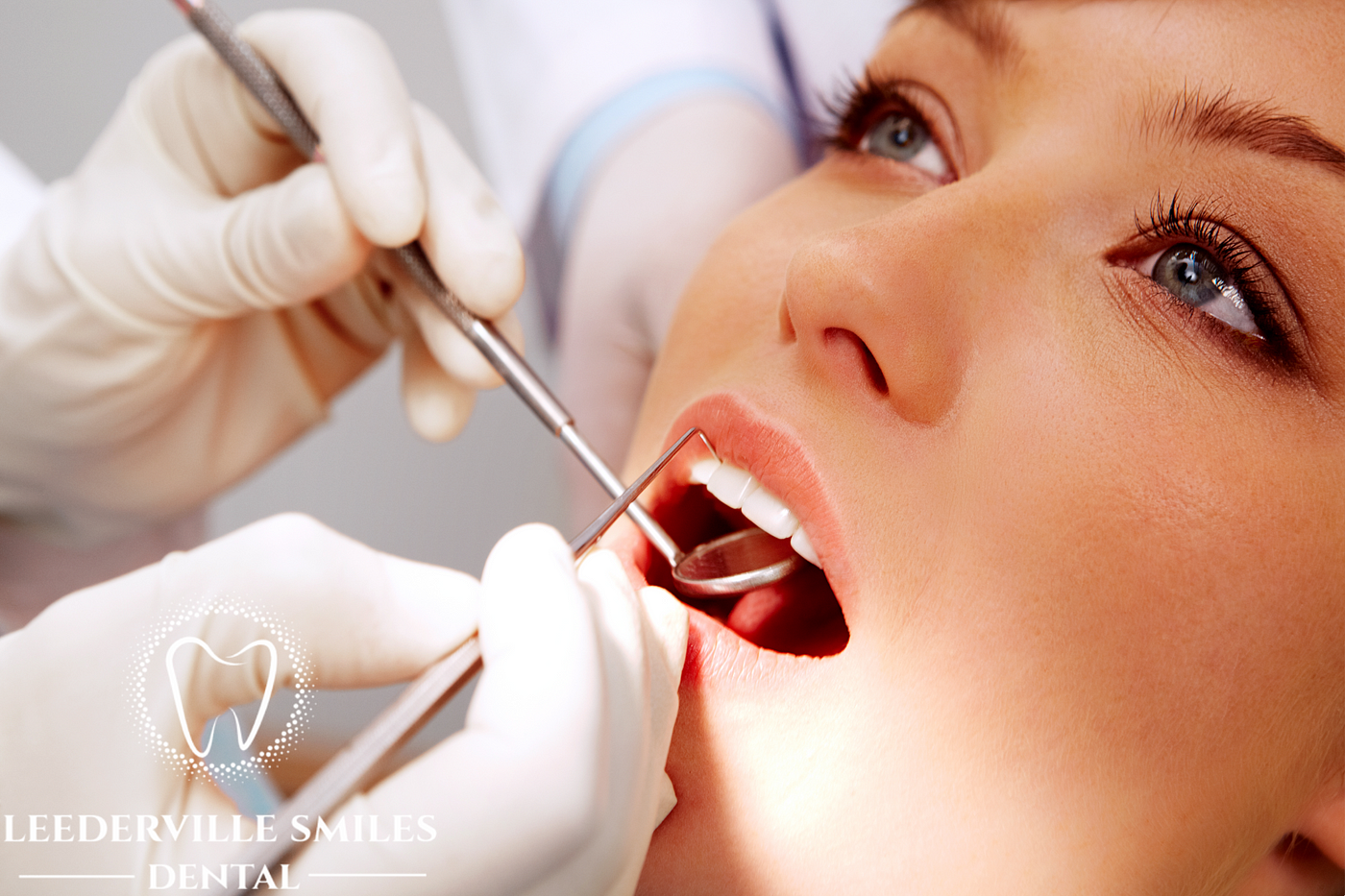
Maintaining good oral health is essential for overall well-being. Comprehensive dental services encompass a range of treatments and procedures aimed at preventing, diagnosing, and treating various dental conditions. From routine check-ups to emergency care and cosmetic enhancements, these services are designed to ensure your smile stays healthy and beautiful. If you’re looking for affordable dental solutions, you’ll be pleased to know that you can get dentures with financing in Rockville, making it easier to restore your smile without breaking the bank.
The Importance of Regular Dental Check-ups
Regular dental check-ups are the cornerstone of preventive oral care. By visiting your dentist at least twice a year, you can catch potential issues early and prevent them from escalating into more significant problems. During these appointments, your dentist will conduct thorough examinations, clean your teeth, and provide personalized advice for maintaining optimal oral health.
Preventive Dental Care: Your First Line of Defense
Preventive dental care focuses on keeping your teeth and gums healthy to prevent problems such as cavities, gum disease, and tooth loss. This includes daily practices like brushing and flossing, as well as regular dental cleanings and fluoride treatments. These simple yet effective measures can go a long way in preserving your oral health.
Importance of Brushing and Flossing
Brushing your teeth twice a day and flossing daily helps remove plaque and bacteria that can lead to tooth decay and gum disease. Using fluoride toothpaste strengthens tooth enamel, making it more resistant to acid attacks.
Regular Dental Cleanings
Professional dental cleanings remove built-up plaque and tartar from hard-to-reach areas of your mouth, reducing your risk of cavities and gum inflammation. Your dental hygienist will also polish your teeth to remove surface stains and leave your smile looking bright and refreshed.
Fluoride Treatments
Fluoride is a naturally occurring mineral that strengthens tooth enamel and helps prevent cavities. Fluoride treatments, typically administered during dental check-ups, provide an extra layer of protection against tooth decay, especially in areas where fluoride levels in the water are low.
Restorative Dental Services: Repairing and Rejuvenating Your Smile
Despite our best efforts, dental issues can still arise. Restorative dental services are designed to repair and restore damaged or missing teeth, helping you regain function and confidence in your smile.
Fillings and Crowns
When a cavity forms, your dentist will remove the decayed portion of the tooth and fill the space with a durable material such as composite resin or porcelain. For more extensive damage, a crown may be placed over the tooth to provide added strength and protection.
Root Canal Therapy
If a tooth becomes infected or abscessed, root canal therapy may be necessary to save it from extraction. During this procedure, the infected pulp is removed, and the inside of the tooth is cleaned and sealed to prevent further infection.
Dental Implants
Dental implants are a popular solution for replacing missing teeth. These titanium posts are surgically implanted into the jawbone and topped with lifelike prosthetic teeth, restoring both the appearance and function of natural teeth.
Cosmetic Dental Services: Enhancing Your Smile
A beautiful smile can boost your confidence and improve your overall quality of life. Cosmetic dental services focus on enhancing the appearance of your teeth and gums, helping you achieve the smile of your dreams.
Teeth Whitening
Professional teeth whitening treatments can brighten your smile by several shades, removing stubborn stains caused by coffee, tea, tobacco, and aging. Whether performed in-office or at home, these treatments are safe, effective, and long-lasting.
Dental Veneers
Dental veneers are thin shells made of porcelain or composite resin that are bonded to the front surfaces of your teeth to correct imperfections such as chips, cracks, gaps, and discoloration. With proper care, veneers can provide a natural-looking smile for years to come.
Orthodontic Treatments
Crooked, crowded, or misaligned teeth can detract from your smile and affect your oral health. Orthodontic treatments such as braces and clear aligners gradually move your teeth into proper alignment, resulting in a straighter, more harmonious smile.
Emergency Dental Care: Handling Dental Crises
Dental emergencies can happen unexpectedly and require prompt attention to alleviate pain and prevent further complications. Knowing how to respond to common dental emergencies can make all the difference in preserving your oral health.
Toothache Management
Severe toothaches may indicate an underlying dental issue such as an infection or abscess. Over-the-counter pain relievers can provide temporary relief until you can see your dentist for a proper diagnosis and treatment.
Dental Trauma
Accidents and injuries can cause dental trauma such as broken or knocked-out teeth. In such cases, it’s essential to remain calm and seek immediate dental care to save the affected tooth and prevent complications.
Lost or Broken Teeth
If a tooth is knocked out or broken, it’s crucial to handle it carefully and seek emergency dental care as soon as possible. Your dentist may be able to reattach the tooth or provide a suitable replacement to restore your smile.
Specialized Dental Services: Catering to Specific Needs
In addition to general dental services, many practices offer specialized treatments tailored to specific age groups, conditions, and concerns.
Pediatric Dentistry
Pediatric dentists specialize in providing dental care to children of all ages, from infancy through adolescence. Their gentle approach and kid-friendly environment help children feel comfortable and confident during dental visits.
Periodontal Treatments
Periodontists are experts in diagnosing and treating gum disease, a common condition that can lead to serious oral health problems if left untreated. With specialized techniques and advanced technology, they can help restore your gum health and prevent further damage.
Oral Surgery
Oral surgeons are trained to perform a wide range of surgical procedures involving the mouth, jaw, and facial structures. From tooth extractions and dental implants to corrective jaw surgery and facial reconstruction, they address complex oral health issues with precision and expertise.
Choosing the Right Dental Provider: Factors to Consider
Finding the right dental provider is essential for receiving quality care that meets your needs and preferences. Consider the following factors when selecting a dentist for yourself and your family.
Location and Accessibility
Choose a dental office that is conveniently located and easily accessible from your home or workplace. This will make it easier to schedule appointments and ensure timely care when needed.
Qualifications and Experience
Look for a dentist who is highly trained, experienced, and up-to-date on the latest techniques and technologies in dentistry. Check their credentials, certifications, and any additional training or specializations they may have.
Patient Reviews and Testimonials
Read online reviews and testimonials from current and former patients to gauge their satisfaction with the dental practice. Pay attention to factors such as communication, bedside manner, wait times, and overall treatment outcomes.
Affording Dental Care: Exploring Financial Options
Dental care should be accessible to everyone, regardless of financial means. Fortunately, there are various options available to help you afford the care you need without breaking the bank.
Dental Insurance
If you have dental insurance through your employer or a private plan, familiarize yourself with your coverage and benefits. Many plans cover preventive care at little to no cost and offer discounts on restorative and cosmetic treatments.
Payment Plans
Some dental practices offer flexible payment plans or financing options to help you spread out the cost of treatment over time. Discuss your financial concerns with your dentist to find a solution that works for you.
Discount Programs
Many dental offices participate in discount programs or membership plans that offer reduced rates on services for members. These programs can provide significant savings on routine care and elective procedures.
Maintaining Good Oral Health: Tips for Everyday Care
In addition to regular dental visits, there are several simple steps you can take to keep your smile healthy and beautiful for years to come.
Healthy Diet and Lifestyle Choices
Eating a balanced diet rich in fruits, vegetables, lean proteins, and whole grains can help support good oral health. Limit sugary and acidic foods and beverages, which can contribute to tooth decay and enamel erosion.
Proper Dental Hygiene Practices
Brush your teeth twice a day for at least two minutes each time, using a fluoride toothpaste and a soft-bristled toothbrush. Don’t forget to floss daily to remove plaque and food particles from between your teeth and along the gumline.
Regular Dental Visits
Schedule regular dental check-ups and cleanings every six months, or as recommended by your dentist. These appointments allow your dentist to monitor your oral health, detect any issues early, and provide timely interventions as needed.
The Role of Technology in Modern Dentistry
Advancements in technology have revolutionized the field of dentistry, making treatments safer, more precise, and more comfortable for patients.
Digital X-rays
Digital radiography allows dentists to capture high-resolution images of the teeth, gums, and jawbone with minimal radiation exposure. These images provide valuable diagnostic information and aid in treatment planning.
Intraoral Cameras
Intraoral cameras are small, handheld devices that allow dentists to take detailed photos of the inside of your mouth. These images can be magnified and displayed on a computer screen, enabling you to see what your dentist sees and better understand your oral health.
CAD/CAM Technology
Computer-aided design and computer-aided manufacturing (CAD/CAM) technology enables dentists to create custom restorations such as crowns, bridges, and veneers in a single visit. This eliminates the need for messy impressions and temporary restorations, streamlining the treatment process for patients.
Addressing Common Dental Concerns
Many people experience anxiety or fear when it comes to visiting the dentist. Understanding and addressing these concerns can help make dental care more accessible and comfortable for everyone.
Fear of the Dentist
Dental fear or phobia is a common issue that can prevent people from seeking the care they need. Open communication with your dentist, along with gentle techniques and sedation options, can help alleviate fear and create a more positive experience.
Dental Anxiety
Dental anxiety is a feeling of unease or nervousness that some people experience before or during dental appointments. Relaxation techniques, distraction techniques, and gradual exposure to dental procedures can help manage anxiety and build confidence over time.
Sensitivity to Pain
For some patients, fear of pain is a significant barrier to dental care. Modern techniques such as local anesthesia, nitrous oxide (laughing gas), and oral sedation can effectively numb the area being treated and minimize discomfort during procedures.
Community Outreach and Dental Education
Dental professionals play a vital role in promoting oral health and educating the public about the importance of preventive care. Through community outreach initiatives and educational programs, they can reach underserved populations and empower individuals to take control of their oral health.
School Programs
Dental health education programs in schools teach children about the importance of brushing, flossing, and eating a healthy diet. These programs may also provide free dental screenings and referrals for follow-up care as needed.
Free Dental Clinics
Free dental clinics serve as a safety net for individuals who lack access to regular dental care due to financial or other barriers. Volunteer dentists and hygienists provide essential services such as cleanings, fillings, and extractions to those in need.
Educational Workshops
Dental practices and community organizations often host educational workshops on topics such as oral hygiene, nutrition, and oral cancer awareness. These events provide valuable information and resources to help individuals make informed decisions about their oral health.
The Future of Dental Care: Trends and Innovations
As technology continues to evolve, so too does the field of dentistry. Emerging trends and innovations promise to make dental care more efficient, effective, and patient-centered than ever before.
Tele-dentistry
Tele-dentistry allows patients to consult with dentists remotely via video conferencing technology. This convenient option is especially beneficial for individuals with busy schedules or limited mobility who may have difficulty visiting a dental office in person.
3D Printing in Dentistry
3D printing technology enables dentists to create custom-made dental appliances and restorations with unparalleled precision and accuracy. From crowns and bridges to orthodontic aligners and surgical guides, 3D printing streamlines the production process and improves treatment outcomes for patients.
AI-assisted Diagnostics
Artificial intelligence (AI) is revolutionizing diagnostic imaging in dentistry, helping dentists detect and diagnose oral health conditions more accurately and efficiently. AI algorithms analyze digital images to identify abnormalities and assist in treatment planning, resulting in better outcomes for patients.
Conclusion
Comprehensive dental services encompass a wide range of treatments and procedures aimed at promoting good oral health and enhancing the appearance of your smile. From preventive care to restorative treatments and cosmetic enhancements, these services address a variety of dental needs and concerns. By prioritizing regular dental check-ups, practicing good oral hygiene, and seeking prompt care for dental emergencies, you can maintain a healthy, beautiful smile for life.


